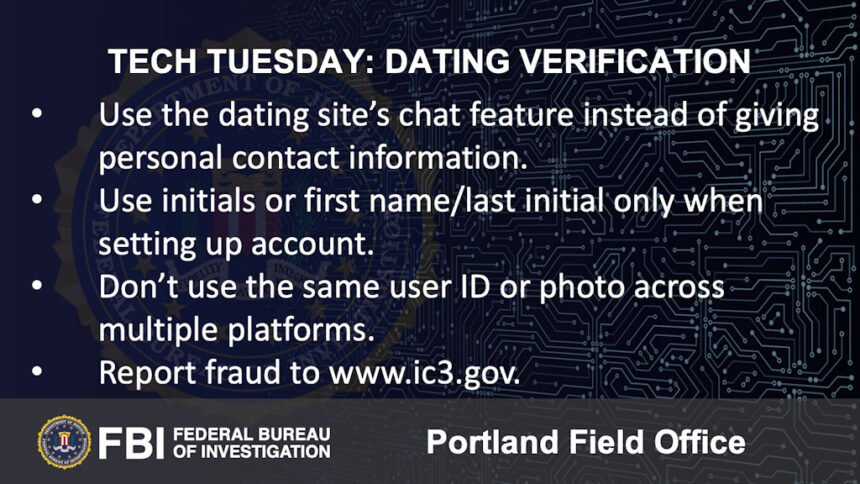Oregon FBI’s Tech Tuesday: Protect yourself — and wallet — if looking for love online

PORTLAND, Ore. (KTVZ) -- This week, the Oregon FBI’s Tech Tuesday feature focuses on building a digital defense when it comes to your love life and your wallet.
We recently had an Oregon resident who reported an uncomfortable run-in with a scammer. The victim lost a small amount of money up front, but he risked a much larger loss if he hadn’t quickly figured out the whole thing was a scam.
The person was using an online dating site and met someone of interest. Ms. Someone immediately worked to get the person off the dating site’s platform and into a private email conversation.
She said she was concerned for her safety and just wanted to take a few extra precautions before they met in person. That sounds reasonable and prudent given the world we live in. But, it is what she asked for next that was of concern.
The scammer sent the potential date links to several websites she said would verify his name and information. In order to access those sites, the victim needed to provide a credit card number.
The scammer said there would be no charge to the card – it was just a way to verify the date’s identity. In the end, he did get charged, and several phishing websites ended up with his credit card number and personal information.
Here are some ways to protect yourself, if you are looking for love online:
- Do use the site’s chat feature instead of giving your phone number or email.
- Don’t use your last name when setting up your profile. Either use your first name and last initial or just initials.
- Don’t list your specific place of work.
- Don’t use the same username or profile picture ?across various public accounts.
- Don’t list your real date of birth.
Finally, if a potential date wants you to pass along financial information – including credit card or bank account details – don’t do it. You will likely end up with a broken heart and an empty wallet.
If you have been victimized by a cyber fraud, be sure to file a report at the FBI’s Internet Crime Complaint Center at www.ic3.gov or call your FBI local office.